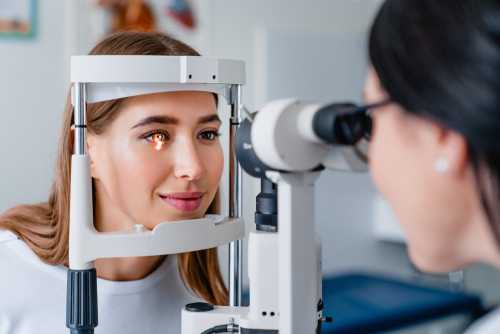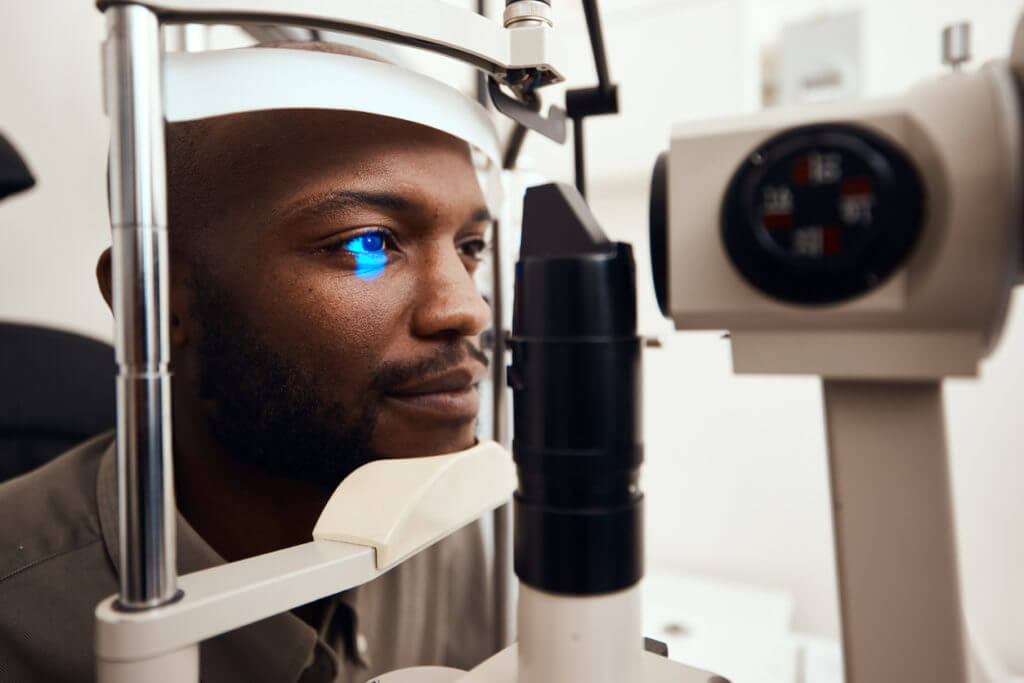Understanding the Duty of an Ophthalmologist in Eye Treatment
The duty of an ophthalmologist in eye treatment is diverse, encompassing both the medical diagnosis and treatment of a wide variety of eye problems. These physician are not only adept at performing extensive eye examinations however also have the expertise to recognize systemic health problems that might materialize via visual symptoms. Provided the frequency of eye conditions such as glaucoma and cataracts, understanding the breadth of an eye doctor's obligations becomes important. Lots of individuals continue to be not aware of the essential facets of eye health monitoring that might dramatically impact their top quality of life. What might be missing out on from this important conversation?

What Is an Ophthalmologist?
Although lots of people might perplex ophthalmologists with eye doctors or lens, an ophthalmologist is a medical physician concentrating on the diagnosis and treatment of eye conditions and illness. ophthalmologist in nabua. This expertise needs considerable education and learning, consisting of completing a bachelor's degree, complied with by medical institution, and a residency in ophthalmology
Ophthalmologists are outfitted to take care of a large range of conditions, from usual refractive mistakes to complicated surgical treatments. They have a thorough understanding of the anatomy and physiology of the eye, allowing them to diagnose conditions such as glaucoma, cataracts, and macular degeneration.
In addition to medical monitoring, lots of eye doctors carry out surgical treatments, such as cataract elimination or laser treatments for refractive errors. This dual capability of offering both medical and surgical treatment identifies them from various other eye treatment specialists.

Trick Duties of Eye Doctors
The key duties of eye doctors incorporate a vast selection of tasks vital for preserving and improving eye health and wellness. They carry out extensive eye evaluations to evaluate visual skill and diagnose different ocular conditions, utilizing advanced analysis tools and methods. This includes analyzing imaging researches and doing specialized tests to evaluate the framework and feature of the eye.
Ophthalmologists are also in charge of recommending rehabilitative lenses, medications, and non-surgical treatments to manage eye conditions effectively. In situations requiring medical treatment, they carry out a variety of treatments, ranging from laser therapies to complicated surgeries targeted at dealing with refractive mistakes or attending to much more extreme eye diseases.
Individual education is an additional vital aspect of their duty. Ophthalmologists educate clients concerning preventative steps, therapy options, and possible risks linked with eye health. They likewise collaborate with other medical care professionals to make certain extensive treatment for patients with systemic illness that might affect vision.
Additionally, they remain abreast of the most recent advancements in ophthalmology with continual education and learning and research, guaranteeing they supply one of the most effective, evidence-based treatment. Via these varied responsibilities, ophthalmologists play an essential duty in safeguarding and improving the vision and general eye wellness of their patients.
Common Eye Conditions Treated
Ophthalmologists often come across an array of over at this website usual eye conditions that need their know-how for reliable administration and therapy. One widespread problem is refractive mistakes, that include nearsightedness, hyperopia, and astigmatism. These mistakes can often be corrected with glasses, contact lenses, or refractive surgery.
Another significant problem is cataracts, identified by the clouding of the eye's lens, leading to blurry vision. Surgical intervention is typically required to remove the cataract and recover quality. Glaucoma, a leading reason for loss of sight, includes boosted intraocular pressure, necessitating regular monitoring and possible medical or pharmacological treatment to preserve vision.
In addition, age-related macular deterioration (AMD) impacts the central portion of the retina, influencing thorough vision. Administration may include way of life adjustments and, sometimes, laser treatment or shots. Diabetic retinopathy, a problem of diabetes, can bring about vision loss if left unattended; cautious monitoring and prompt treatment are essential.
The Relevance of Routine Eye Exams
Normal eye examinations play an essential role in preserving overall eye wellness and discovering potential issues early. Many eye problems, such as glaucoma, macular degeneration, and diabetic retinopathy, can create without obvious symptoms up until substantial damage has actually occurred. Routine examinations allow ophthalmologists to identify these concerns at their onset, permitting prompt treatment that can prevent vision loss.
During an eye examination, an eye doctor evaluates aesthetic Your Domain Name skill, assesses the health and wellness of the eye's interior structures, and checks for any irregularities. These assessments are critical not just for diagnosing eye-related problems but likewise for determining systemic health problems that might show up through eye signs, such as hypertension or diabetes.
The regularity of eye tests can vary based on age, threat elements, and existing wellness problems. For example, individuals over 60 or those with a family members history of eye condition must be especially persistent concerning normal examinations. Ultimately, focusing on eye examinations promotes proactive management of eye health and wellness, ensuring that any possible problems are addressed promptly, thereby maintaining vision and improving high quality of life. Along with an ophthalmologist, clients can create a tailored timetable that ideal fits their individual needs.
Exactly How to Choose an Ophthalmologist
Picking an eye doctor is a vital decision that can dramatically influence your eye health and total health. When choosing an eye doctor, consider their qualifications, experience, and locations of specialization. ophthalmologist in nabua. Ensure they are board-certified and have actually finished the required training in ophthalmology, which normally includes a medical level and several years of residency
Referrals from your health care physician or trusted good friends can supply valuable understandings into possible candidates. Furthermore, investigating online reviews and patient testimonies can aid assess the ophthalmologist's credibility within the community. Assess the eye doctor's experience with certain problems or procedures pertinent to your needs, such check here as cataract surgery, glaucoma management, or pediatric eye care.
Area and availability are also vital elements; select an ophthalmologist whose office is easily situated and provides adaptable hours. When you have actually narrowed down your alternatives, schedule an examination to discuss your concerns and assess their interaction design. A great eye doctor ought to be approachable, alert, and ready to address your inquiries completely. Inevitably, selecting an eye doctor that aligns with your health care demands and individual comfort can promote a favorable long-lasting relationship concentrated on keeping your eye health.
Verdict
To conclude, eye doctors offer a crucial feature in eye treatment with their comprehensive training and knowledge. By detecting and dealing with a vast variety of eye problems, these physician considerably add to the preservation of visual health. Normal eye exams are important for very early detection of potential concerns, thereby improving overall wellness. Selecting a qualified eye doctor is critical for obtaining proper treatment and maintaining optimum eye health throughout one's life.